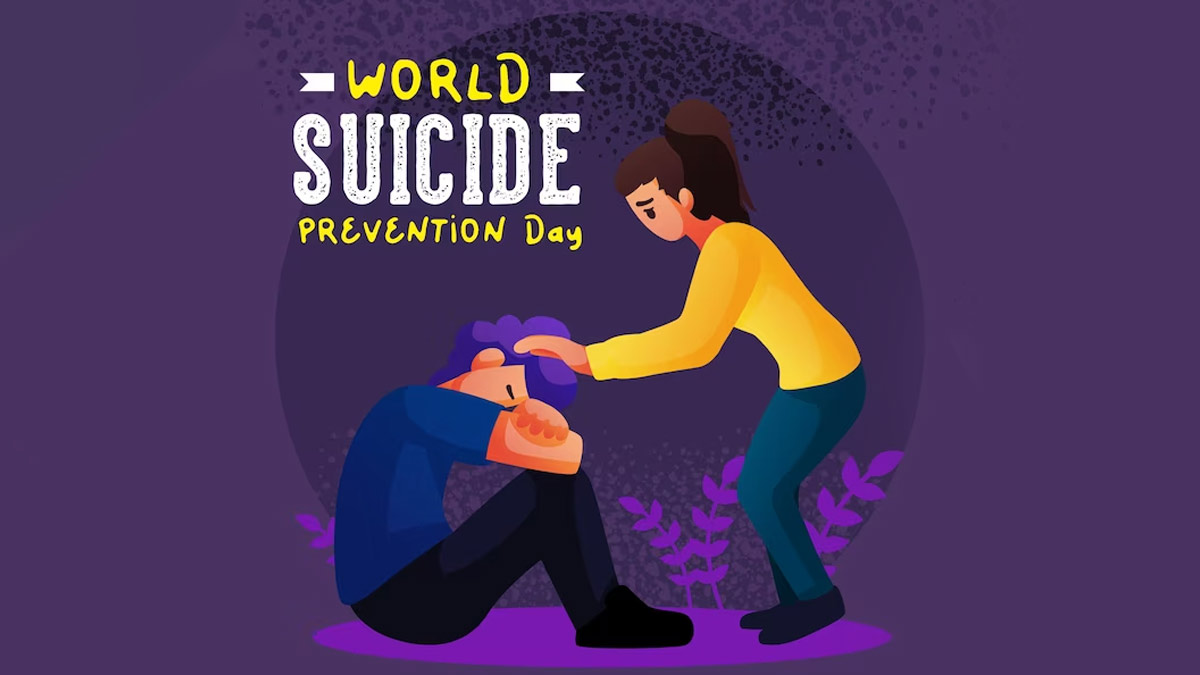
We are living in a world that is rushing forward at a relentless pace. In all the chaos, it's too easy to overlook the silent struggles faced by countless individuals. Behind the smiles and everyday routines, many bear the weight of dark thoughts and overwhelming despair, navigating a path toward the precipice of self-destruction. On World Suicide Prevention Day 2023, we are reminded of the pressing need to extend our collective hand to those teetering on the edge, offering them hope, understanding, and a lifeline to safety.
Suicidal thoughts can afflict anyone, regardless of age, gender, or background. They are not confined to the shadows but can be hidden in plain sight. Recognising the signs and knowing how to respond is not just a matter of empathy; it's a critical skill that could mean the difference between life and death for someone in crisis.
According to the National Crime Records Bureau, 1.64 lakh suicides were reported in India with a rate of 12 in 2021. This translated to nearly 450 deaths each day. Among the many reasons contributing to suicide, poor mental health issues need to be discussed. Foram Matalia, Clinical Psychologist, Bhatia Hospital, Mumbai, explains the challenges in accessing mental health support for suicide prevention and ways to help someone with suicidal thoughts.
Also Read: Spate Of Suicides: Is Compromised Mental Health Triggering People To Take Such A Step?
Challenges in Accessing Mental Health Support

"One of the prevailing issues hindering effective intervention is the shortage of resources allocated to mental health support. Whether due to financial constraints, volunteer scarcity, technical glitches, or overburdened resources, the existing framework often falls short in addressing the pressing needs of individuals in suicidal crises," said Matalia.
She added that helplines, a lifeline for many, operate for limited hours during the day and are often unavailable during critical late evening hours. To make emergency mental health help better, we need to look at the whole picture and consider all aspects.
Enhancing Emergency Mental Health Response
According to the doctor, a potential solution lies in the establishment of a mobile team of behavioural health professionals, working either independently or in coordination with law enforcement, to de-escalate situations and provide immediate support. This proactive approach could significantly reduce the risk of irreparable harm.
"However, the challenges don't end there. Many people in crisis can't find the helpline numbers because they don't know them. So, they end up searching online for the information they need," she added.
"The hopelessness that sets in when calls go unanswered, whether due to changing minds, interruptions, or a lack of immediate solutions, further exacerbates the situation," she said.
Raising Awareness and Bridging Communication Gaps
"Addressing this multifaceted challenge requires a collaborative effort between governments, organisations, and communities. Raising awareness about helpline details is paramount, necessitating the establishment of an easily memorable helpline number," said Matalia.
She said that governments must allocate sufficient resources to complement existing infrastructure, amplifying the effectiveness of emergency services. "Expanding support via text messages and calls in regional languages can bridge the communication gap and make assistance more accessible," she suggested.
Also Read: Study Finds LGBTQ Youth Suffers From Suicide Risk By More Than 3 Times
Leveraging Technology and Education for Intervention

According to Matalia, technology can also play a pivotal role in suicide prevention. "Employing artificial intelligence to monitor social media content and identify signs of suicidal thoughts or plans can enable timely interventions," she added.
"Furthermore, empowering individuals through education and training is crucial. Incorporating mental health classes into school curricula, coupled with workshops for teachers and students, can equip them with the tools to identify warning signs and take appropriate action. This holistic approach ensures that a clear path is laid out, connecting individuals to helplines and subsequent support," she highlighted.
Building Support Networks and Breaking Stigmas
"Creating a survivors' network for families who have lost someone to suicide establishes a space for shared experiences and healing. Equipping individuals with basic emotional first-aid skills can be a lifeline for those in distress," said Matalia.
She added, "We need a collective shift in mindset, a recognition that mental health is a valid and pressing concern. This journey begins with patience and the commitment to reach out to individuals and institutions that can offer or seek help."
A Collective Effort Towards Suicide Prevention
"Integrating life skills training and career guidance programs into the educational framework can address stress-related mental health issues among students, fostering resilience and coping mechanisms," said Matalia.
By dismantling the stigma associated with mental health and establishing a comprehensive support network, we can guide in a brighter, more compassionate future. The road to a happier life may be as simple as starting a conversation, an opportunity to save lives that should not be underestimated.
[Disclaimer: This article is for information purposes only. Take to your mental health professional if you suffer from any mental health issues.]
Image Credits: freepik







